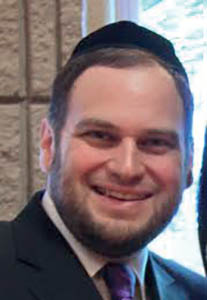
Rav Yosef Shlomo Kahaneman, zt”l, the legendary rosh yeshiva of the Ponevezh Yeshiva, once spoke about the greatness of Rav Moshe Chaim Yehuda Schneider, zt”l, who was the rosh yeshiva of the yeshiva Toras Emes in London. Rav Kahaneman explained that the words “I can’t” were never heard out of the mouth of Rav Schneider. He was able to succeed in so many of his endeavors both personally and on behalf of the yeshiva because of his attitude. When challenges would seem daunting, he would not be swayed; instead he just got to work with his goal being success.
At this time of year we give an accounting for our behavior and attitude over the past 12 months. We pause to reflect on all that has transpired over the past year, and we commit to improving this coming year. Yet, many of us find ourselves very guarded and hesitant when it comes to being honest with ourselves in one area of our lives. When it comes to our behavior with others, our relationships, our physical health or our financial well-being, we almost never find ourselves using the term “I can’t.” For some reason, when it comes to matters of our spiritual health, we allow ourselves to use the term “I can’t” quite easily. When it comes to our minyan attendance, decorum during davening, learning Torah, sense of modesty, recitation of Tehillim, taking the time to focus and understand the mitzvot that we are practicing, and our anonymous acts of chesed, we too often say that “I can’t.” Whether it is because we don’t see ourselves as that “type” of person, or because we don’t have the patience, we have been selling ourselves short. When looking back at this past year in retrospect, how many times did we say “I can’t” when we know that we really could have? As we welcome a new year, let us remove the words “I can’t” from our vocabulary and take an approach of “I can” when it comes to spiritual matters as well as relationships in our lives.
By Rabbi Eliezer Zwickler
Rabbi Eliezer Zwickler is rabbi of Congregation AABJ&D in West Orange, NJ, and is a licensed clinical social worker in private practice. Rabbi Zwickler can be reached at [email protected].













